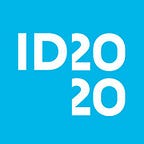Immunization: an entry point for digital identity
With World Health Day around the corner on April 7th, we’d like to bring attention to the intersection of global health and digital identity, and specifically the opportunity for immunization rates to scale digital identity amongst the most hard-to-reach children.
Globally, an estimated 95% of children receive at least one dose of some vaccine. This number is staggering — no other public health intervention reaches more children and impacts more families.
Yet, despite this high initial contact rate, only 37% of children in the world’s poorest countries are fully immunized, meaning that they receive their full course of recommended vaccines. Ultimately, many children are left without comprehensive protection and vulnerable to many vaccine-preventable diseases.
There are several reasons for low coverage rates, including the low quality of population data and reliance on outdated systems to track immunizations, but one critical challenge is the continued use of paper-based systems to record the doses that have been administered and indicate when a child needs to return for boosters. Unfortunately, the paper records kept within a clinic are often difficult to analyze and the immunization cards given to families are prone to loss and inaccuracies. Without a persistent, portable record that can be uniquely linked to the child, it’s often difficult to ascertain the care a child needs.
In November, Dr. Seth Berkley, CEO of Gavi, the Vaccine Alliance, wrote a piece for Nature that emphasized the pressing need to move to digital systems — specifically those to identify and track those currently missing out — to achieve 100% immunization coverage.
One of the biggest needs is for affordable, secure digital identification systems that can store a child’s medical history, and that can be accessed even in places without reliable electricity. That might seem a tall order, but it is both achievable and necessary.
This message was reinforced at this year’s World Economic Forum meeting in Davos, Switzerland, where Gavi announced digital identity as the focus for its 2018 INFUSE program. INFUSE — Innovation for Uptake, Scale and Equity in Immunization — aims to identify and support innovative solutions that have the potential to modernize global health and immunization delivery. This year, Gavi is focusing its efforts on identifying opportunities for digital identity technologies to help facilitate better targeting, follow-up, and immunization service delivery for the world’s most vulnerable children.
Immunization poses a huge opportunity to scale digital identity — in many developing countries, immunization coverage greatly exceeds birth registration rates. According to best available estimates, upwards of 95% of children globally receive at least one dose of one vaccine (with 86% of children globally receiving the full three doses recommended of the diphtheria-tetanus-pertussis vaccine, which is commonly used to measure immunization coverage).
When a child receives her first vaccine, she receives a paper child health card. In many developing countries, the most common form of identification is not a birth certificate, but this card. The near ubiquity of these documents presents an enormous opportunity.
Moving from easily lost or damaged paper health cards to an accessible digital form would reduce the burden associated with tracking a child’s vaccines and eliminate redundant or unnecessary paperwork. Digital child health cards can improve coverage rates and vaccine compliance by prompting parents to bring their children in for necessary subsequent doses. For health workers, digital identity technology validates a child’s past vaccines and may streamline analytics and outreach, without adding significant complexity to a health worker’s workflow. And for Gavi and its international partners, digital ID technology provides a basis for a system of verifiable proofs and accurate aggregate data that interoperates with other identity management systems, negating the need for each organization to independently identify beneficiaries.
And because immunization is conducted in infancy, providing children with a digital child health card would give them a unique, portable digital identity early in life. And as children grow, their digital child health card can be used to access secondary services, such as primary school, or ease the process of obtaining alternative credentials. Effectively the child health card becomes the first step in establishing a legal, broadly recognized identity.
In turn, having a persistent and portable health record uniquely tied to the child will help to increase full immunization coverage rates by prompting follow-up and better targeting the most hard to reach children.
In order to enable digital identity at scale, we will need to identify and leverage many entry points. Immunization service delivery presents a tremendous opportunity to provide children with a durable, portable and secure digital identity early in life, enabling access to a wider range of social services, while also improving access to the health interventions all children need and deserve.
We’re proud to partner with Gavi and excited to see the innovations proposed as part of the INFUSE Challenge. To all innovators: the deadline to apply for the program is April 10th, so please get those applications in!
INFUSE 2018 is calling for proven digital technology innovations — adapted to low-resource environments in developing countries — to help identify and register children, especially girls, who are at risk of missing out on life-saving vaccines. The deadline to apply for Gavi’s 2018 INFUSE program is April 10th. Apply here.
